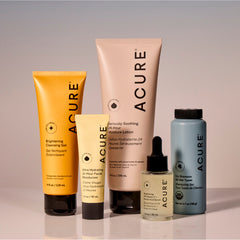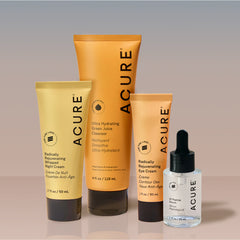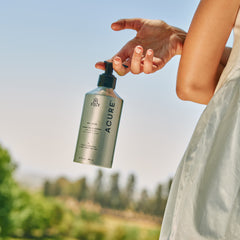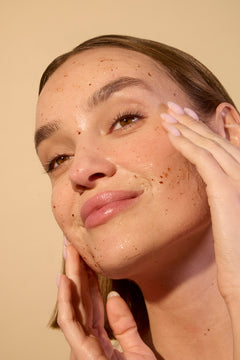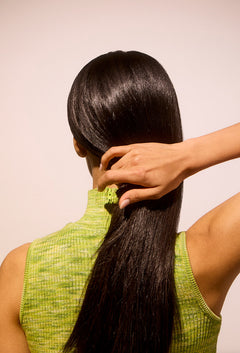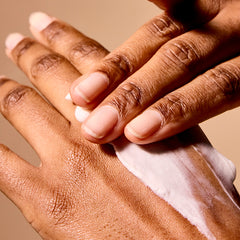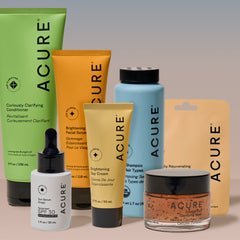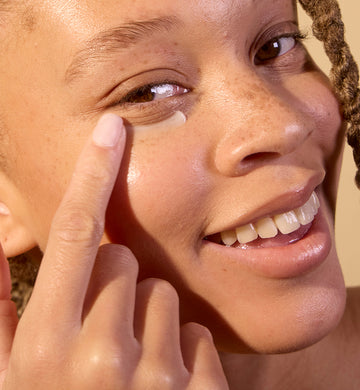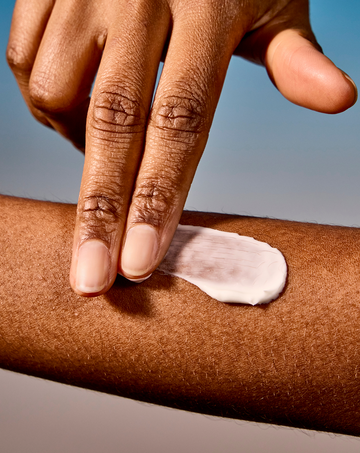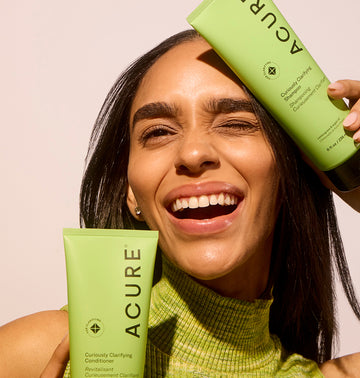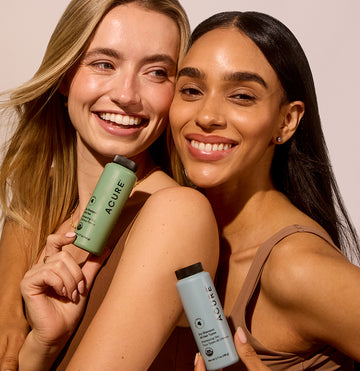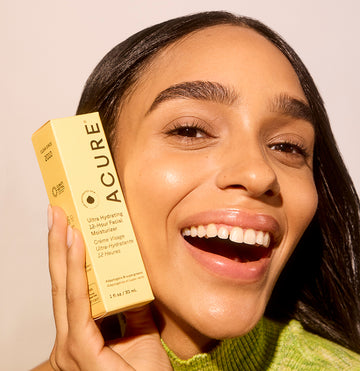TLDR: Your scalp type is special—and so is your hair texture. Let’s get familiar with yours to find the most effective shampoo for you.

If you’re using a shampoo that’s not quite the right fit for you—at best, it just gets the job done, nothing more. At worst, it damages your hair and disrupts your natural hair pattern. You deserve a great shampoo: one that’s suited for both your hair type and scalp type, while actively benefiting and improving your hair. Here’s how to find your perfect shampoo match.
Determine Your Scalp Type
Just like your skin type, your scalp type is determined by how much sebum the skin on your head produces. It’s important to know because the scalp is the origin of your hair. Your roots tell a major story, and can affect your hair strength, appearance, and even growth.
Let's determine your scalp type, which will influence the products you choose.
Oily
• Characterized by an overproduction of sebum build-up on the scalp.
• pH is more acidic (below a 5.5.).
• You likely have to wash your hair every one or two days to avoid a greasy look.
• Hair may appear overly shiny and flat.
• Scalp may feel itchy and flaky, and dandruff might be present.
• Should avoid overly-moisturizing shampoos.
Normal
• Characterized by a balanced level of sebum.
• pH is balanced (5.5).
• You’re able to go three or more days without washing your hair before grease starts to build up.
Dry
• Characterized by a lack of sebum.
• pH is less acidic (above a 5.5).
• You may be able to wash your hair only once or so a week before grease appears.
• Hair is prone to breakage.
• Scalp may feel tight and itchy, and appear flaky.
• Should avoid too much dry shampoo.
If you’re unsure, ask your barber or hairdresser at your next appointment and they’ll be able to confirm for you, or drop us a line at expert@acure.com.
Determine Your Hair Type
Now that we’ve established what type of scalp you have, we’ll also want to examine your hair type. Genetic factors play a major role in determining your hair type, as well as treatments like a perm or keratin.
While you can break it down into more granular curl/coil types (e.g. 3C, 4A, 4B & 4C), hair types generally fall into four categories.
1 - Hair that dries straight
2 - Hair that dries wavy
3 - Hair that dries curly
4 - Hair that dries into coils

Straight Hair
• No natural curl present.
• Prone to oiliness, so heavy products are not recommended.
• Benefit from dry shampoos and avoiding washing hair too frequently.
• Volumizing, clarifying shampoos are a good choice.

Wavy Hair
• In-between straight and curly.
• May appear as gentle and tousled, loose loops, or ‘S’ shaped waves.
• Benefit from avoiding excessive heat while styling and using products that are anti-humidity, lightweight, and hydrating.
• Clarifying shampoos and hydrating conditioners are a good choice.

Curly Hair
• In-between wavy and coily.
• May appear as ‘S’ shaped curls, spiral curls, or tight and springy curls.
• Benefit from avoiding silicone and sulfates, and using gentle combing methods. (P.S. Acure products are free from parabens, sulfates, mineral oil, petrolatum, and formaldehyde.)
• Moisturizing shampoos and leave-in conditioners are a good choice.

Coily Hair
• The most delicate hair type.
• May appear as ‘S’ shaped coils, zig-zagging coils, or tight coils.
• Benefit from treatments that preserve hair health and non-stripping products.
• Hydrating shampoos and deep conditioners are a good choice.
Find The Right Shampoo For Your Haircare Needs
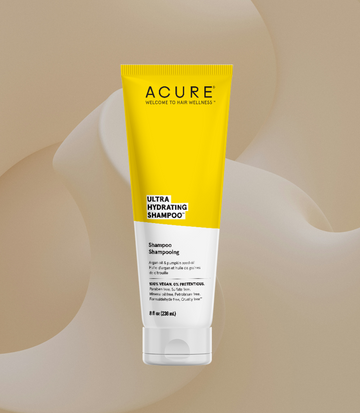
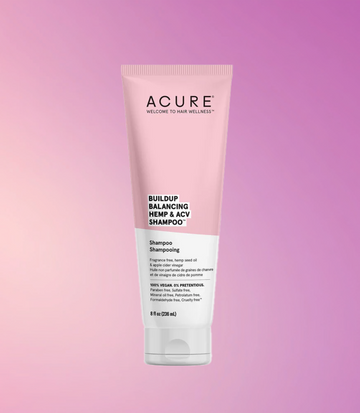
Ultra-Hydrating Shampoo
• Our best-selling, gentle moisturizing shampoo.
• Provides lasting moisture to leave hair soft and manageable.
• Best for all hair types, especially those experiencing damage or breakage.
• Best for dry and normal scalps.
Buildup Balancing Hemp & ACV Shampoo
• Clarifying shampoo that reduces buildup.
• Resets hair’s balance with pH-adjusting and clarifying apple cider vinegar and hemp seed oil.
• Good for all hair types.
• Best for oily scalps.
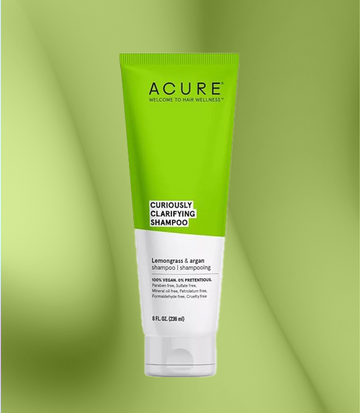
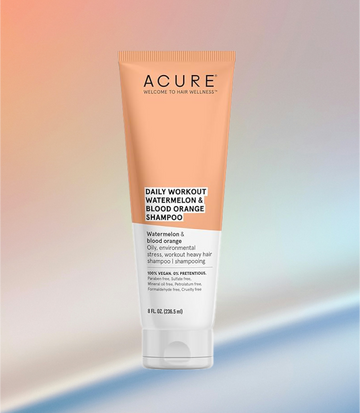
Curiously Clarifying Shampoo
• Daily shampoo that eliminates buildup.
• Gentle enough for everyday cleansing.
• Infuses hair with lemongrass (moisturizing, anti-inflammatory, hair-growth promoting) and argan oil (scalp moisturizing, breakage-reducing).
• Good for all hair types, especially those prone to breakage and buildup.
• Best for dry scalps.
Daily Workout Watermelon & Blood Orange Shampoo
• Formulated for those whose hair requires frequent washing due to harsh environmental conditions, heavy sweat, or just plain oily locks.
• Good for all hair types.
• Best for oily and normal scalps.
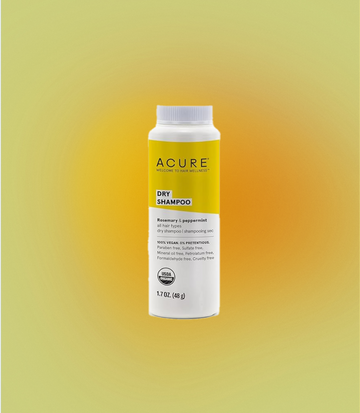
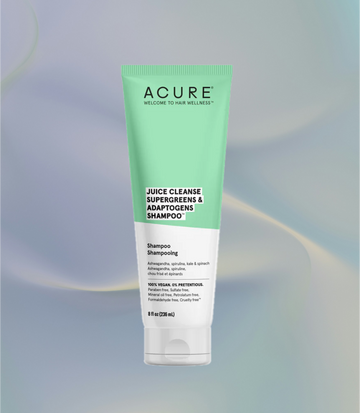
Dry Shampoo
• Easy to use, fast-acting dry shampoo.
• Rosemary and peppermint refresh the scalp, while arrowroot and kaolin clay absorb oils and remove grime without the need for water.
• Good for all hair types, especially those with thinner hair or looking to add more volume.
• Best for oily and normal scalps.
Juice Cleanse Supergreens & Adaptogens Shampoo
• Antioxidant-infused shampoo for super stressed hair.
• Adaptogenic herbs and supergreens brighten and re-energize your hair.
• Best for all hair types, especially those who frequently style and/or have damaged hair.
• Best for dry scalps.
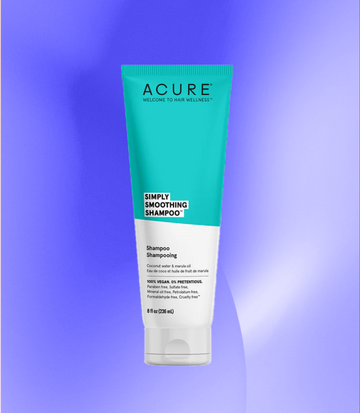
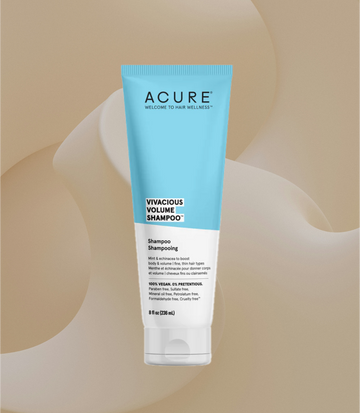
Simply Smoothing Shampoo
• Frizz-fighting shampoo to smooth and add shine.
• Marula oil and coconut water transform hair from frizzy and frustrated to smooth and shiny.
• Best for all hair types, especially those with wavy, curly, coily hair or prone to flyaways.
• Best for all scalp types.
Vivacious Volume Shampoo
• Volumizing shampoo that delivers fullness and body to fine, fragile hair.
• Infused with mint and echinacea to moisturize without weighing hair down.
• Best for all hair types, especially for fine/thin hair.
• Best for normal and oily scalp types.
Explore all of our hair care offerings—from leave-in conditioners to serums to masks and more here.
All information, content, and material of this blog is for informational purposes only. This blog provides general information and discussions about health and beauty related subjects. The information and other content provided in this blog or in any linked materials are not intended and should not be considered, or used as a substitute for, consultation, medical advice, diagnosis and/or treatment of a qualified physician or healthcare provider.
